European Islam – Threat and Challenge The Call of the Minaret in European History
European Islam – Threat and Challenge The Call of the Minaret in European History
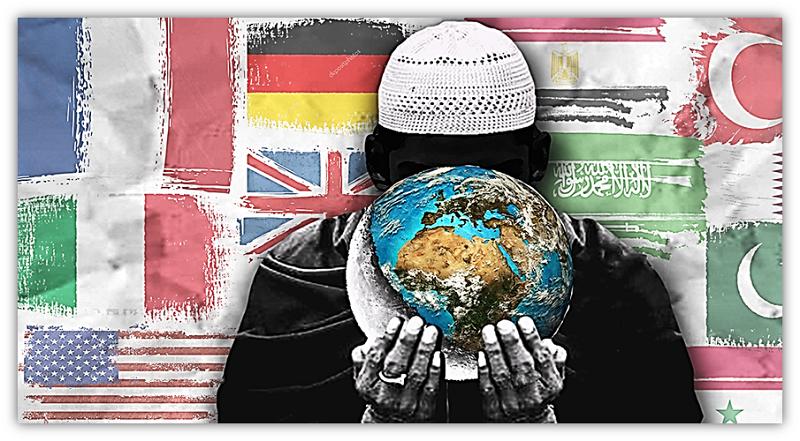
At various moments in history Islam has tried to gain a foothold in Western Europe. I mention one or two of these moments. In 711 Spain came under Islamic authority to a large extent. From Spain the Muslims made an attempt to move up towards France. In 732 they were stopped in their advance by Charles Martel at Poitiers.
Centuries later the Muslims made a new attempt. The Ottomans advanced to Central Europe. The battle of Mohács in 1526 became a household word for the Hungarians.
In 1529 the Ottoman armies laid siege to Vienna. However, they did not manage to push on. We take long steps through history and arrive at the year 1683 when the Turkish Muslims attacked Vienna again. But again they did not succeed in pushing on.
On the contrary. From that moment onwards Islam went downhill in Europe. The Ottoman border in Europe was shifted backwards further and further.1 This development continued during the next two centuries. It was especially Napoleon’s invasion into Egypt in 1798 that made the power of the west felt in the Ottoman empire.
The Third Invasion⤒🔗
In a few months’ time the book The Third Islamic Invasion of Europe by Raphael Israeli will be published. In his book he writes that at the moment Europe has to do with a third invasion of Muslims. And he shows that the third invasion follows an entirely different course. Nowadays Islam does no longer spread by means of arms as it used to do in the past. Islam nowadays advances through penetration, propaganda, conversion, and demographic changes. Raphael Israeli uses the Arabic word dawa for this, which can be translated by ‘mission’. He supports his argument with numerical data. At the moment there are about 30 million Muslims within the borders of the EU. If Turkey is admitted there will be 105 million at one stroke.
In the Israeli paper Jerusalem Post Islam scholar Bernard Lewis wrote:
Muslims are in the process of taking over Europe.
In his view Islam will soon be the dominant power in Europe. The continent has given up the struggle for its own culture and religion. Another quotation from his article in Jerusalem Post:
The Europeans are taking leave of their own history and are losing their self-confidence. They do not show respect for their own culture.
Now Raphael Israeli and Bernard Lewis are two Jewish scholars with an explicitly negative view of Islam. It is obvious that their view has everything to do with the state of Israel and its Muslim neighbours. Of many other leading Islam scholars it must be said that they give their view of Islam from a non-Islamic background. And I think it is justified that Muslims find this hard to take. Non-Muslims sometimes pretend to know better what Islam implies than the Muslims themselves.
Therefore, I think it is important also to listen to Islam scholars who are Muslims themselves and who know Islam from the inside. How do they look upon the presence of Islam in Western Europe? To answer this question, we should pay attention to Dr. Tariq Ramadan.
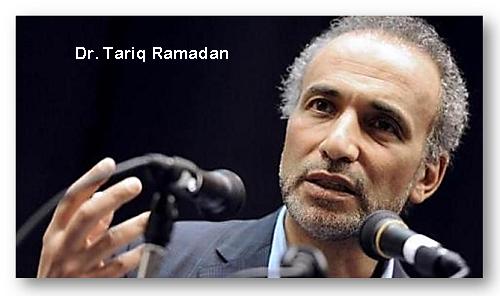
Islam and the Globalization←⤒🔗
Tariq Ramadan was born in Geneva in 1962. He is a philosopher, (an authority on Nietzsche) and an Arabist. At the moment Dr. Ramadan is also a professor of ‘identity and citizenship’ at the Erasmus University of Rotterdam. In 2004 the American weekly Time counted Ramadan amongst the one hundred most influential people in the world. This Tariq Ramadan has written a book entitled “Western Muslims and the Future of Islam”.2 The title of his book already shows that as a Muslim Ramadan is engaged on the question of Islam within western democracies. Hence the importance of his book for our subject.
Tariq Ramadan emphasizes that the globalization of the world entails great changes for the Muslims as to their world view. From of old orthodox Muslims have divided the world into the daar alislaam and the daar al-harb. The daar al-islaam is the area in which Muslims are in the majority and in control. This, in their view, is the area of peace. Daar al-harb is the denotation of the area where Muslims form a minority; this is the area of war. In this area Muslims are allowed to adapt to the political and social circumstances of the society in which they live.
The effect of the globalization of the world is that this division has become very relative. Ramadan states that not a single country in the world is completely governed according to Islam. Moreover, he states that Muslims – as far as free practice of religion is concerned – feel much safer in the West than in certain countries that are Islamic in name only.3
Ramadan even goes one step further by postulating that globalization has made the distinction between daar al-islaam and daar al-harb outdated.
Nowadays such clear-cut distinctions can no longer be made. The situation is no longer such that Turkey is only inhabited by Muslims and France by non-Muslims. The western countries too harbour large groups of Muslims within their borders, who have found a home in these countries.
The West as the ‘home’ of al-da’wa’←⤒🔗
It is for this reason that Muslim scholars have pointed out a third notion besides daar al-islaam and daar al-harb. This third concept is daar al-ahd, ‘house of the covenant’. This designation raises the supposition that there are countries that are not Islamic from a political point of view, but have nonetheless entered into an alliance of peace and cooperation with one or more Islamic countries. Many people regard the emergence of this concept as an interesting opportunity to apply it to the present political situation in the international context. Tariq Ramadan4 points to the existence of institutions like the United Nations or the Organization of African Unity, as well as numerous treaties between states. His objection against the application of this concept is that it will only function against the background of the division of the world into various ‘homes’, and this division does not match the present situation in the world.
As he writes:
In our world relations between two separate ‘homes’ is out of the question. The point is far more a matter of relations between people who belong to a diversity of civilizations, religions, cultures and moral systems, and who refer to them.5
Tariq Ramadan’s concern is to make clear that, as a Muslim, he wants to be able to live as a full citizen in any country. In fact, his book is a strong appeal to Muslims in the West to participate in social and political life as full citizens. This attitude has made him very popular among (young) Muslims.
As for theology, he goes back to the situation of Mohammed in Mecca in the days before his flight to Medina. At that time there was no talk of a division of the world into daar al-islaam and daar al-harb. Mohammed stood at the beginning of his mission. To him the whole world was still daar ad-da’wa, which means something like ‘house of appeal to God’ or ‘house of witness’. In Ramadan’s view Muslims find themselves in the same position as Mohammed at the time. The whole world is a ‘mission field’ again, now that Muslims are scattered all over the world.6 Likewise, in the West their task is especially a missionary one. And it is a fine thing that in the West they are also given room to pray, to demonstrate Islam, and to preach their message.
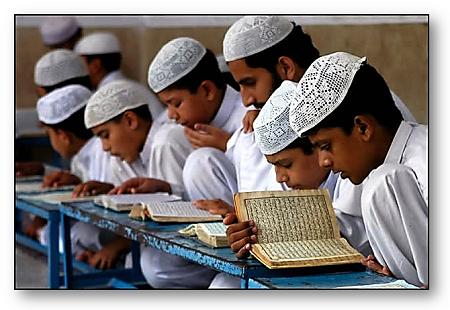
When Ramadan compares the situation in Europe (and that includes the Netherlands) with that of Mecca before the hidjra (Mohammed’s migration from Mecca to Medina) we should realize that he declares Europe a mission field.7 Ramadan’s missionary drive aims at finally changing Europe into daar al-islaam, home of Islam.8
Islamizing Europe←⤒🔗
What does the position that Ramadan advocates mean in practice for Muslims in Europe? Tariq Ramadan emphatically pleads for commitment by Islamic citizens who are no longer oriented towards their home country. They should feel at home within the western democracies because their fundamental rights are guaranteed there (p. 97). This holds out prospects of a harmonious living-together in Europe.
At the same time, I get the very strong impression that Ramadan considers this period as an interim period only. I can illustrate this by means of the Islamic ban on giving and taking interest (riba). This ban is of course very difficult to enforce within western economy. Hence, Ramadan writes that Muslims in Europe temporarily do not have to comply with this rule in order to make up for it at a later time.
It is typical of Ramadan that he does not really call on people to compromise for life in the West, but instead instigates the design of alternative economic concepts. Muslims must free themselves of the current economic system by stages (p. 259).
Thus, he writes on p. 260 that;
we must not come to terms with the system, except with the intention and the specific commitment to obtain the (strategic and temporary) means to escape from it. Contrary to the old theories there are no longer two separate worlds, and whether it is here or there our rejection of the ruling system is a radical one.
I cannot interpret this otherwise than as an appeal to islamize life in Europe step by step. It is Tariq Ramadan’s ambition to change Europe into ‘the home of Islam’. As for this question, professor Raphael Israeli is right when he writes that the spreading of Islam in Europe will take place along the lines of dawa.
Islam as a Threat←⤒🔗
I need not explain to you, members of European Reformed churches, that Islam implies a threat to the Christian church. Numerous examples can be given both from the past and the present that clearly illustrate this threat. However, this does not alter the fact that it is necessary for us as European Christians to look at ourselves critically by asking ourselves the question: Isn’t it partly our own doing that Islam could become such a threat? What do Muslims who migrate to Western Europe find here? Vibrant churches or churches that look like museums? Do they encounter societies here that are characterized by Christian values, norms and virtues?
There is no denying the fact that European culture is deeply influenced by Christianity. The ringing of church bells, the celebration of Christian festivals and Sunday as a holiday are proof of that. But is there more than that? Should we not admit that Western European culture has a embraced a hedonism that is very similar to the decadent ‘bread and circuses’ culture of the Roman Empire? In other words, that Islam has become such a threat has everything to do with the weakening of Christianity in Europe. Muslims seem to have every right to say that it is necessary for them to come and restore social and religious life in Europe. This means that humility for us is not out of place.
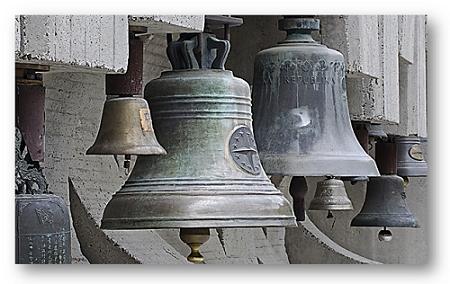
Islam as a Challenge←⤒🔗
The arrival of millions of Muslims in Europe poses a threat to the Christian church. At the same time, however, I would like to emphasize that it also presents a great challenge and opportunity to reach out to them with the gospel and to confront them with a really Christian style of living.
In the former church book of the Reformed churches in the Netherlands one of its prayers contained the following passage:
We pray for the mission among Jews, Muslims, and heathen (…) In the current version this has been changed into: We pray for the spreading of the gospel among Jews and heathen (…)
Muslims have disappeared from our official prayers. This is typical of the limited attention that has been paid these last decades to the mission among Muslims. And I assume that the situation is not very different in other Reformed churches in Europe. Be that as it may, the Lord God faces us with a clear challenge to dedicate ourselves to the spreading of the gospel among the Muslims in our countries.
Answer to the Call←⤒🔗
I will make clear that Reformed doctrine has an answer to the call of the minaret with respect to three themes:
a. The Doctrine of the Trinity←↰⤒🔗
Muslims consider the creed that God is a triune God unacceptable. In their view anyone who adheres to this doctrine commits an unforgivable sin. Liberal theologians cannot answer this. They meet the Muslims halfway by confessing Jesus as a prophet and the Holy Spirit as the Divine power (and not as a person). However, by doing so they negate the centre of the Christian confession.
Practice teaches us that many Christians have problems giving an account of their faith in a triune God. When they are asked questions about it, the answer often is: Yes, I do find the doctrine of the Trinity very hard to explain. But this excuse is not necessary at all. In a discussion with Muslims the best thing to do is to refer to their own confession Allahu Akbar. These Arabic words are often translated God is great. A more accurate translation, however, is: God is greater.
Now this is exactly the praise that the confession of the Trinity induces us to. It befits us to praise the triune God who is above us (the Father), who is with us (the Son), and who is within us (the Holy Spirit). Praise to this God befits us, who is greater and more glorious than we can imagine. Muslims pronounce the words Allahu Akbar several times a day. It is especially on account of this profession that we can appeal to them with our Christian confession. And at the same time we must not forget also to live on the basis of this confession by praising the triune God.
b. Infant Baptism and the Promise of the Land←↰⤒🔗
Within Reformed circles more and more room is given to the rejection of infant baptism and the acknowledgment of rebaptism. I am firmly convinced that this is an alarming development. I cannot help but see this as going hand-in-hand with a different view of the covenant. This has its consequences for the encounter with Muslims. I will try to give a short exposition of my view. If one denies that baptism has replaced circumcision, the new covenant is severed from the old. That makes the old and the new covenant two different entities. Each covenant with its own promises. As for the old covenant, this implies among other things that there is still a land promise for the people of Israel. And so there are Christians in the Netherlands who take the view that the state of Israel has a divine right to its territory.
This opinion will in the first place cause difficulties for the Christians living among the Arabs (e.g. the Palestinian Christians).
This opinion will also impede the mission among Muslims, because the state of Israel receives divine legitimacy. Reformed doctrine, however, does not cause this difficulty.
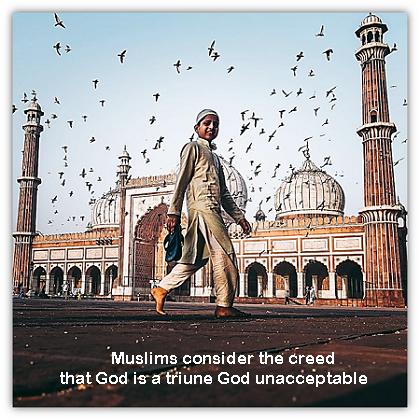
However dear the Jewish nation may be to us – the state of Israel is a state like any other and has to adhere to international treaties.
c. Life is One←↰⤒🔗
Last January I attended a seven-day conference in Cyprus. Its aim was to equip Dutch ministers for the confrontation with Islam. The conference was held in Larnaca, in the building of the MERF (Middle East Reformed Fellowship). Dr. Victor Atallah, director of the MERF, showed us an interesting characteristic of the Reformed approach to mission work. He stated that Reformed doctrine has a ‘holistic’ view of life. Remember the statement by Dr. Abraham Kuyper: “There is no inch of which Christ does not say: It is mine!” On this point the Reformed faith distinguishes itself from the evangelical-charismatic movement. The latter focuses far more on the individual and pays less attention to society as a whole. Therefore, the evangelical-charismatic movement fails in the confrontation with Islam. Islam is a religion that determines all aspect of life, including the social and political sphere.
In this respect, too, the Reformed faith is far more capable of answering the challenge of Islam. That is why it is more than worth the trouble to keep Reformed theology up-to-date.
Threat and Challenge←⤒🔗
In the current discussions about the spread of Islam in Europe discussion partners often force the following dilemma on each other: Islam is a threat or a challenge. One camp enlarges on the dangers of Islam. The other depicts multi-cultural society as an ideal. As Christians we should not allow this dilemma to be imposed on us. That is why I speak about Islam as a threat as well as a challenge. There is no denying the fact that the Islamization of Europe entails a spiritual threat to the church of Christ. But as Christians in Europe we must not put a full stop there. We should see God’s guidance in the coming of Muslims to Europe. He uses it to challenge us. It is a challenge that can be summarized in a one sentence: Preach the gospel of grace to Muslims!
Discussion←⤒🔗
An animated discussion followed the presentation. Here is a brief report of a selection of those points.
How many of the 30 million Muslims in Europe are secularized?←↰⤒🔗
It is very difficult to give a conclusive answer on this question. You can see several developments. On the one hand, you can see the process of secularization among a lot of young Muslims. They smoke, drink alcohol and don’t attend the services in the mosques.
On the other hand, there is a growing self-awareness among well educated young Muslims. In the past young Muslims couldn’t defend themselves against the critical questions of young Christians. In my experience nowadays the situation has turned around!
Basically all Muslims (secularized as well as non-secularized) have a strong sense of belonging to the umma (the worldwide Muslim community). In my experience for most Muslims belonging is a stronger feeling than believing.
Is it possible to speak of a challenge in the situation of few Christians and superior numbers of Muslims? Isn’t better to speak only of threat in that case?←↰⤒🔗
As long as we enjoy freedom we can say (as Peter does in 1 Peter 3:15): “Always be prepared to make a defence to anyone who calls you to account for the hope that is in you.” (RSV)
Do we need Islam experts in the church?←↰⤒🔗
It is very important to have some experts who can instruct the congregations for the encounter with Muslims. In the Netherlands several Reformed churches support the foundation called ‘Evangelie & Moslims’ (Gospel & Muslims). This foundation organizes courses and conferences. They also publish books and teaching materials for confirmation classes and so on. Important is the aftercare for new believers from a Muslim background.
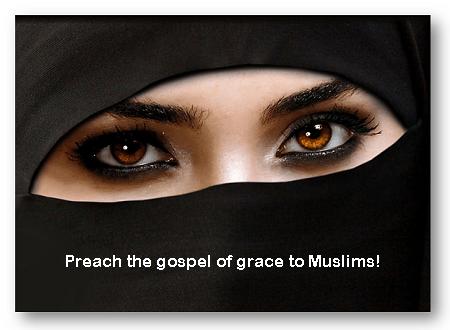
What about biblical material in encountering the Muslims?←↰⤒🔗
To put it in an extreme way: “I love Muslims but I hate Islam.” In other words: we have to look after our Muslim neighbour who is mostly also ‘the sojourner within our gates’ (cf. Exodus 20:10). The parable of the prodigal son strikes Muslims deeply. They cannot understand the reaction of God as a loving Father. This is significant. This experience teaches us to reach out to Muslims with the love of Jesus Christ. That is why it is necessary to build relations first. A good relation with a Muslim is a basic condition for the communication of the gospel.
Can you explain why you said that when discussing the trinity with Muslims you should refer to their own confession “Allahu akbar”?←↰⤒🔗
First of all, the confession of a triune God is blasphemy to Muslims. Apart from that they also consider it crazy. Don’t forget Islam is a very rational religion. That is the reason why I point out their own confession “Allahu akbar”, which means: God is greater. Indeed: God is greater than we can understand (supra rationem).
Is the rejection of infant baptism of the same importance as holding on to the land promise for the state of Israel?←↰⤒🔗
For us as Reformed Christians in Europe the rejection of infant baptism is of more importance. However, for the Christians in Muslim countries and the Christian missionaries in these countries the issue of the land promise is very hot. It suggests that all Christians are convinced that Israel has a divine right to its territory.
My main point was to clarify that there is a direct connection between the rejection of infant baptism and the land promise. Both points have their roots in the same wrong view of the Covenant. Most Baptist Christians break the one covenant up into two: the old (fleshly) covenant with everlasting promises for the people of Israel and the new (spiritual) covenant for Christians.
Why is it so important to emphasize that Reformed theology has a holistic view?←↰⤒🔗
Islamic theology is also holistic. That’s right. Both Islamic and Christian theology are holistic. On this point we agree with Muslims and disagree with a lot of evangelical-charismatic Christians. Because of this holistic view Reformed Christians are in a better position to understand Muslims on this point. At the same time Christians have to explain to Muslims that it is very dangerous to confuse ‘church and state’.
Very helpful on this point is the Old Testament. Except Melchizedek no king was allowed to be priest as well. Spiritual power is not safe in the hands of kings. Melchizedek was a type of Jesus Christ. Only in his hands everything is safe. Look at the countries around Israel in the Old Testament. In most cases the king was also high priest. And he reigned the people as a dictator. Until our time (spiritual) dictatorship arises wherever ‘church and state’ are mixed up. It is the aim of the Taliban in Afghanistan.

Add new comment